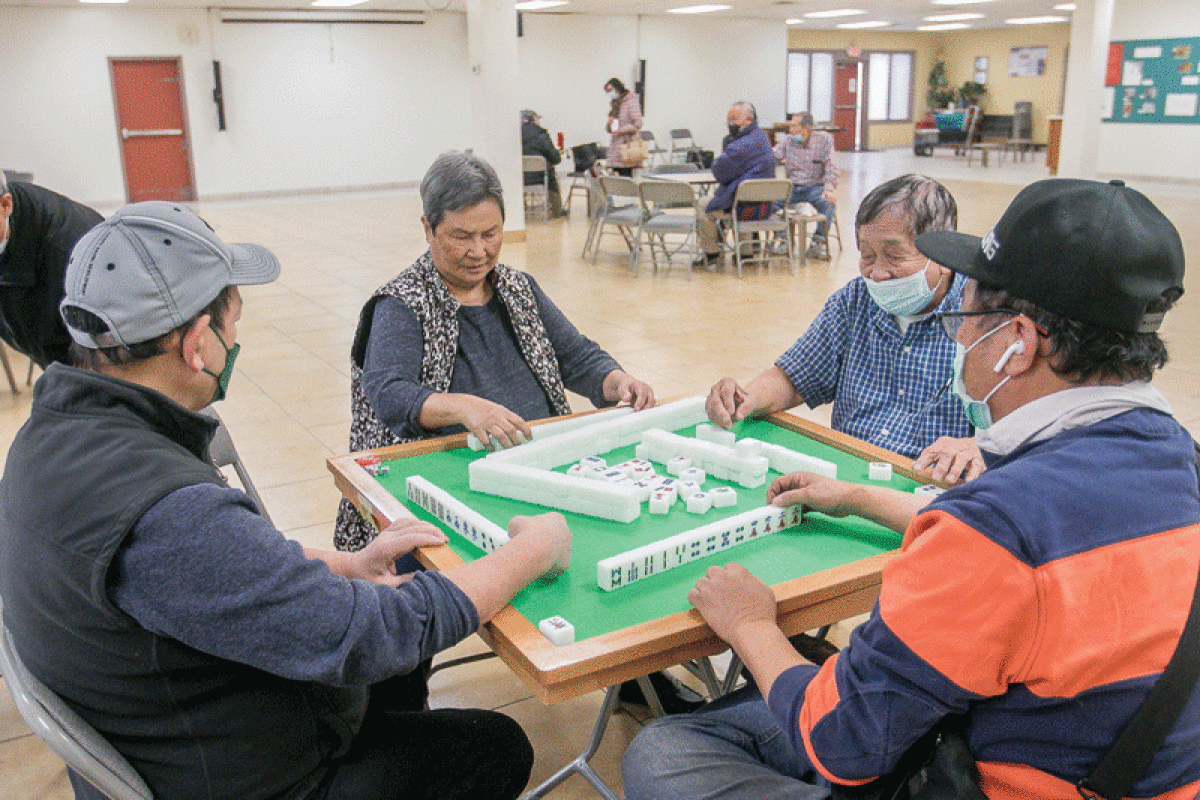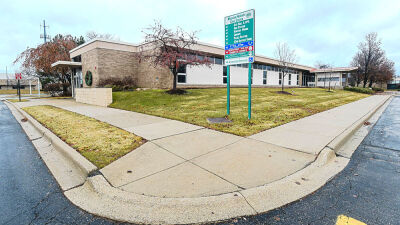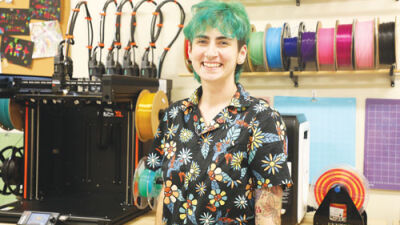MADISON HEIGHTS — For half a century, the Association of Chinese Americans has looked out for the interests of metro Detroit’s sizable Chinese American population. The organization — called ACA for short — manages the Chinese Community Center in Madison Heights, where it provides many services and resources.
Its work today is as necessary as ever, as recent years have seen a spike in hate crimes toward people of Asian descent.
“The Association of Chinese Americans and its Chinese Community Center have become the heart and soul of the Chinese American community,” said Roland Hwang, a lifelong member of ACA and two-time past president, in an email. “Its services and programs are offered to all in the Asian American community, and the community at large.”
According to the organization’s history as posted on its website at acadetroit.org, its roots stretch back to the fall of 1971, when Dr. Andrew Yang gave a speech at the Bloomfield Hunt Club about the need for a group promoting the interests of Chinese Americans. Back then, the U.S. government did not recognize the People’s Republic of China, and there was concern that the Vietnam War could escalate into a broader conflict with China, leading to the possible mass incarceration of Chinese Americans, as was the case with Japanese Americans during World War II.
There was also a need to address discrimination that Chinese Americans continued to face in schools, workplaces and social welfare programs, despite the passage of landmark legislation such as the Civil Rights Act in 1964 and the Immigration and Nationality Act of 1965.
The first meeting of ACA was held in November 1971, and by February 1972, the group voted on its constitution and board of directors. The group also adopted its current name, and that summer it was incorporated in the state of Michigan, followed by IRS tax exemption in the fall.
Over the years, ACA has established working relationships with other Chinese American groups such as the On Leong Merchants Association and the National Chinese Welfare Council. ACA has also co-sponsored health clinics and activities for the elderly, conducted voter registration drives, and awarded scholarships. Through its national organization, OCA-Asian Pacific American Advocates, ACA also spearheaded the formation of the National Council of Asian Pacific Americans (NCAPA), which aims to unite all Asians in celebration of Asian Pacific American Heritage Month.
In the 1980s and 1990s, ACA’s leadership began to discuss the prospect of a community center. That effort was kickstarted by a $1 million donation by Mason and Grace Yu. After that, there were capital contributions from Ford Motor Co., Chrysler and dozens of families. A committee was formed to look for a suitable site, and a former Chi-Chi’s location in Madison Heights was selected. The property was purchased in 2003.
On Aug. 8, 2005, ACA finally opened the Chinese Community Center, at 32585 Concord Drive. It has since become a major community anchor in the city of Madison Heights. The center is open 9 a.m. to 4:30 p.m. Monday through Thursday and on Friday from 10 a.m. to 4 p.m.
Within its walls, staff and volunteers run programs ranging from recreational and enrichment activities such as senior gardening, pingpong and ballroom dancing, to essential services including daily hot lunches. Other highlights include the annual Lantern Festival, which follows Chinese Lunar New Year each year, and the Healthy Gardening Fair. Both have become major events at the venue.
Today, the Asian population in Michigan stands at 3.4%, with a population of 314,844, according to the 2020 U.S. census. The Chinese population comprises about one-third of the overall Asian population in Michigan.
Hwang noted that the Chinese American population has grown exponentially over the years since the passage of the Immigration and Nationality Act of 1965, much of it driven by the auto industry and tech sector. With that has come challenges familiar to many minorities, including hate crimes and discrimination.
“What comes to mind is the Vincent Chin baseball bat-beating case — going back to 1982 — and the spike of over 10,000 anti-Asian hate incidents reported from 2020 to the present throughout the U.S.,” Hwang said. “The challenges that ACA faces include spreading awareness about the threat of anti-Asian violence, and what can be done to address the hate, whether it is through better education about the place of Asian Americans in U.S. society, seeking anti-hate legislation, or tending to the welfare of those who have been victimized.”
ACA also offers wellness classes, free monthly health screenings, health insurance assistance, bilingual social services, interpretation services, classes on citizenship and the English language, digital literacy workshops, youth programs, a Chinese summer camp, a Chinese-language library, travel outings, and weekly group activities including choir, poetry reading, a book club and fitness dance. It’s all part of ACA’s greater goal to improve opportunity and quality of life.
To this end, ACA is currently raising funds to renovate the Chinese Community Center, including needed building and roof repairs, and the restoration of its kitchen. The goal is $300,000, and at press time, ACA had already raised half that goal.
Peggy Du is ACA’s executive director. She described the good her group continues to achieve, not only at the Chinese Community Center itself, but also through partnership programs at the Detroit Service Center and Canton Center. She encouraged people to pitch in if they can.
“Our commitment will require investment in new tools and resources in programming, as well as maintenance of our centers for the health, safety and enjoyment of those that we serve,” Du said. “Your support is much needed. Please join us in moving ACA forward into a new era through our 50th Anniversary Capital Campaign.”
Roslyn Grafstein, the mayor of Madison Heights, said via email that she first learned of ACA when her children were enrolled in the Chinese immersion program through Lamphere Schools. When a shooting in Atlanta, Georgia killed six Asian American women in 2021, Grafstein met with ACA to discuss how Madison Heights can help them protect their community. This led to a city forum on the issue of anti-Asian hate crimes, as well as other collaborations.
“Last year, I helped (ACA) deliver books to some of our elementary schools, as part of their ‘One Book One World’ program. I think the most fun I had with ACA was when they joined me at a library storytime to read a few of the books they donated,” Grafstein said. “I look forward to working with them on more community outreach programs in the city, and I applaud all the work they have done over the last 50 years.”
For more on ACA’s 50th anniversary capital campaign, visit acadetroit.org.
 Publication select ▼
Publication select ▼





















